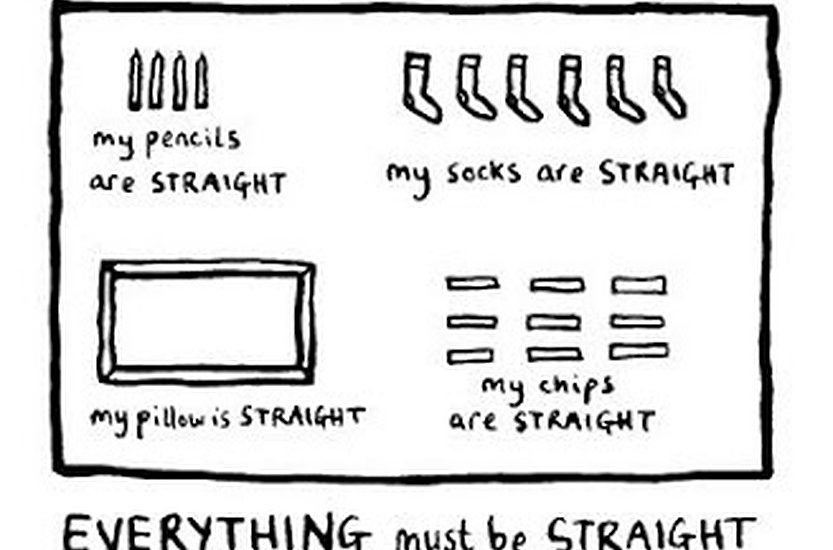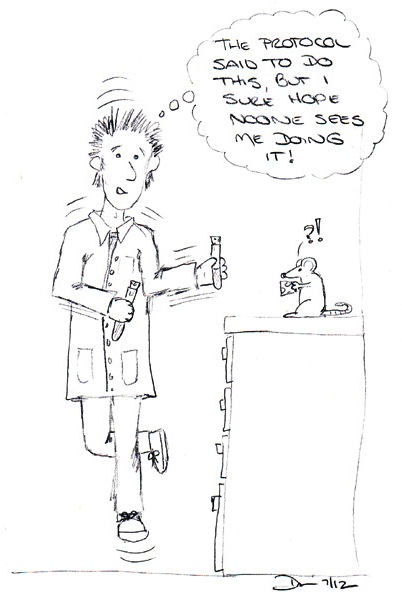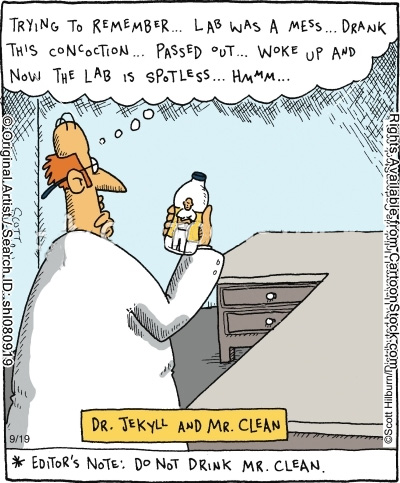
The law of straightness
In my previous post, ‘A geochemistry ditty’, I penned what is possibly the geekiest poem you will ever come across. I was therefore pleasantly surprised when several people got in touch to say how much they appreciated my artistic license, as they could associate with much of what I’ve been through. This got me thinking about the many other experiences that geochemists share, and what other universal truths may bind us together. I’m not talking about problems with machines and or downtime in the lab due to bad airflow, rather the little day-to-day things that we all seem to do without realising.
Take, for example, my fondness for keeping things aligned. I fully accept that I am on the extreme end of things when it comes to keeping things neat and tidy; I rarely leave my desk without straightening up my piles of paper, and a favourite past time of my old office mates was turning my books upside down and misaligning them on the shelf and seeing how long it took me to realise the disturbance (never normally more than 1 day). Although this penchant for neatness is admittedly a bit over the top and can cause both extreme amusement and annoyance at the same time, it does serve me brilliantly in the lab: I keep my working area clear and free from rubbish, I know exactly where my acids and other reagents are kept, and everything’s fully labelled and identifiable should someone else want to run the procedure after I’ve left.

I have since discovered that I’m not alone in displaying such neurotic lab behaviour. I know several colleagues who happily hide away behind teetering piles of unread papers on their desk, but maintain an air of organisation in the lab that astounds even themselves. For example, during a recent visit to the clean labs at Durham University I discovered a colour coded label system used to keep specific acid bottles in certain fume hoods for use with particular isotope systems. Genius. Similarly, I’m sure I’m not the only person to keep all of my pots carefully aligned on the hotplate, and who doesn’t swear by the magic rule of ‘3’ when rinsing beakers in water?
Not all of this behaviour can be attributed to an over developed sense of order. Arranging pots when performing sample digestions is sound practice, as it means you know what sample is where if catastrophe strikes and all the labels become illegible. Likewise, rinsing everything 3 times (or more) helps minimise the risk of crossover contamination between cleaning stages. I guess the real question therefore is what aspects of our lab routine we develop because we’ve been taught to do it in that way, and what parts to we do just because it seems right to ourselves.
Differences in lab etiquette really come to the fore when discussing the lab-cleaning rota. This universal bone of contention is an essential but time consuming aspect of labwork, and is always made all the worse for knowing that it’s not your turn as you did it last time. No matter how many times you put your name down, the feel-good brownie points you got on Friday don’t count for anything when you rock up on a Monday morning only to discover that a heard of elephants must have stormed through the corridor over the weekend leaving their muddy prints all over the entrance mat. Of course, having a spotlessly clean lab provides no guarantee of getting good data, but it does help, and there’s nothing more frustrating then watching other people waltz in and benefit from your mornings hard mopping and scrubbing without a word of acknowledgement or offer to take their turn next time.


Of course it would be wrong to say that all geochemists should strive to be strictly regimented in the lab, as what really matters is the quality of scientific output and everyone should be allowed to achieve that in their own manner (with due consideration to Health & Safety constraints of course!). However, I can’t help wondering how many other researchers out there have a tendency to adhere to the ‘law of straightness’, and kept our working area spotlessly neat and tidy…
